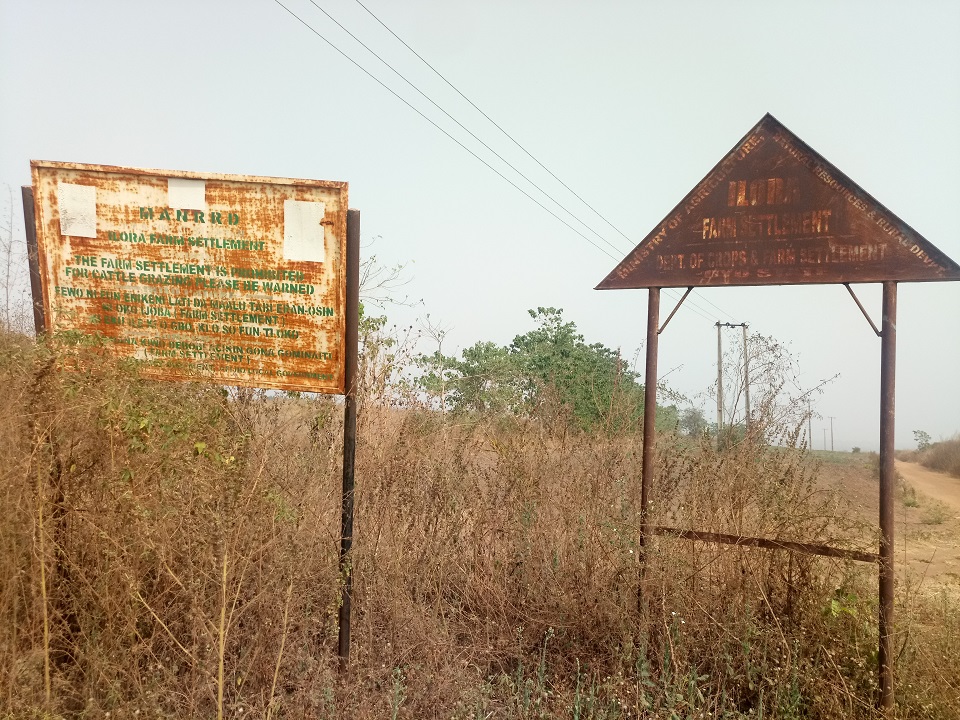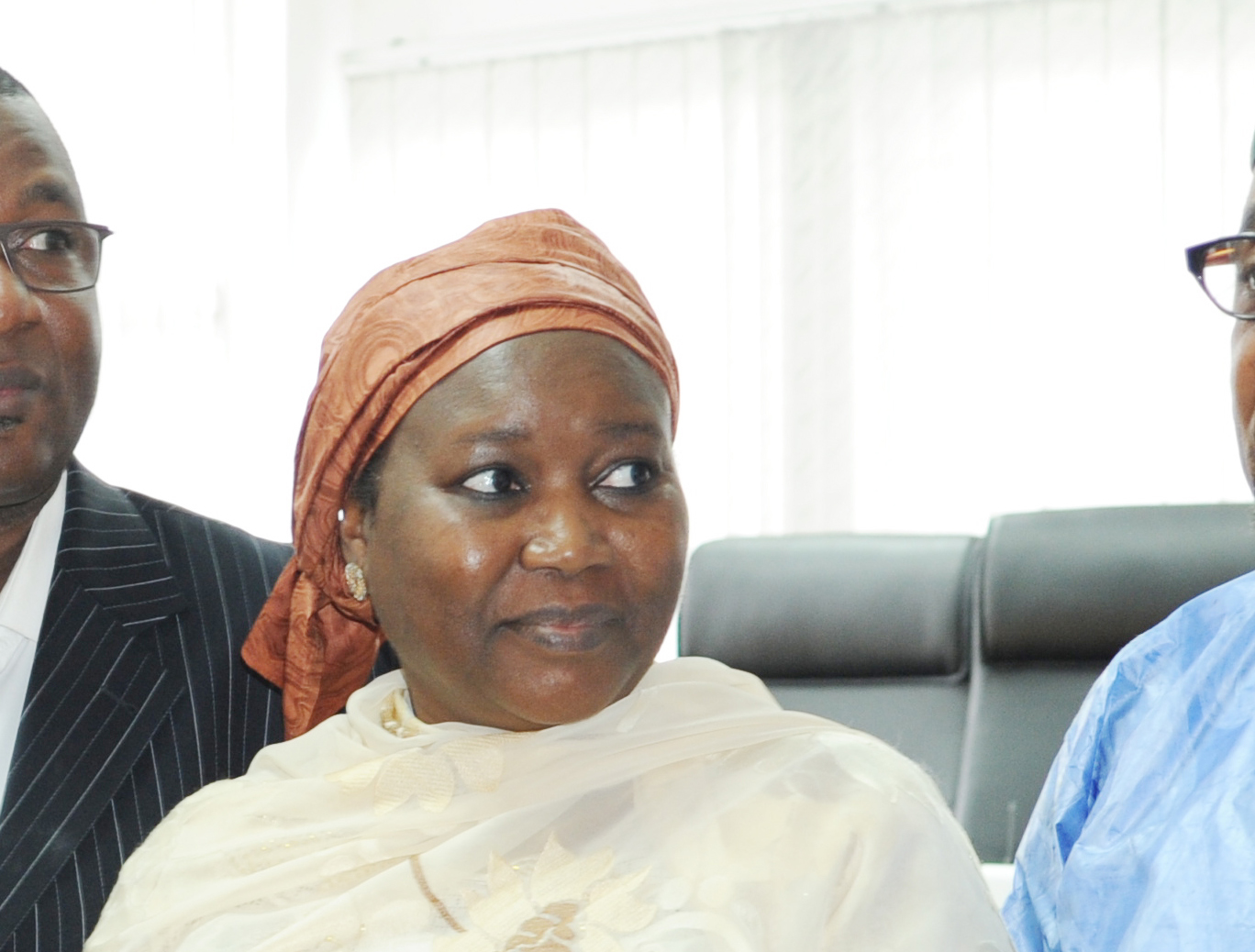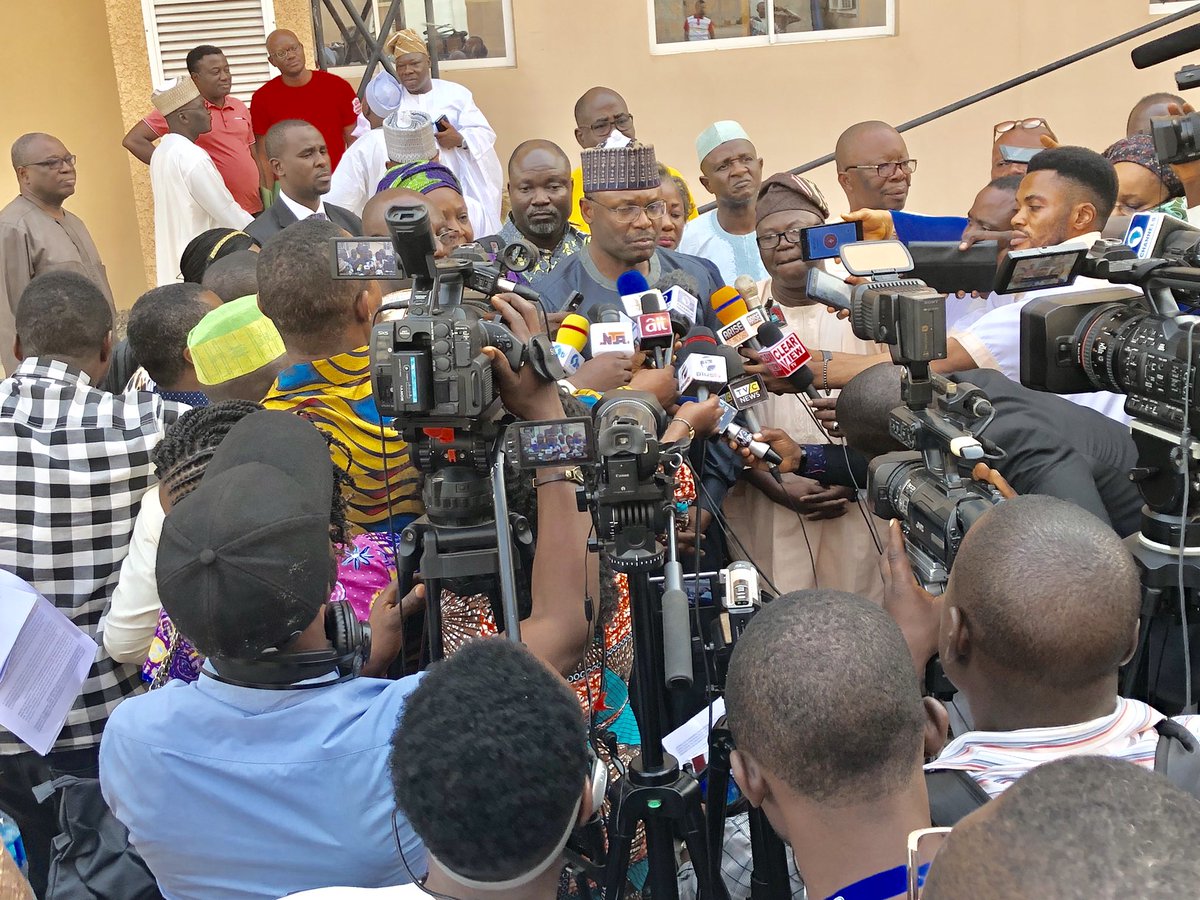Shattered and forgotten, thousands hectares of land in government-owned farm settlements are going into extinction while Nigeria spends about N7.9 trillion annually on food importation. The settlements are becoming deserted, while the aged occupants live in squalour. In this report, TAIWO ADEBULU examines the economic impact of the settlements, the opportunities for small-scale farmers and youth employment.
With a plaintive expression on his wrinkled face, 65-year-old Samuel Odebiyi’s voice was effortlessly calm and compelling as he brought back feeble memories of a sweet past. With his hands rested on the old metal bunk bed, he regaled the listening ears with tales of the good old days when life was rosy and cheerful. Those were days when everything you wanted fell right under your feet – without even waving a magic wand. Those were also days when prosperity oozed from tilling the soil. Men married many wives; babies were christened every now and then with glitz and glam and life flourished endlessly. At the Sawonjo farm settlement (formerly Igbogila farm settlement) in Yewa north local government area in Ogun state, Odebiyi alone married two wives and birthed twenty children – including three set of twins.
These farm settlements began when the Western regional government led by the premier, late Obafemi Awolowo, launched a five-year development plan (from 1955 to 1960) to enhance a steady rise in income and the general standard of living of the people. To achieve this, the premier and other officials went to Israel to study its agricultural development scheme named Moshav. The report of the study in 1959 birthed the establishment of 20 farm settlements and five institutes across the region with the aim of achieving food sufficiency and to encourage educated young men make a profitable career in farming.
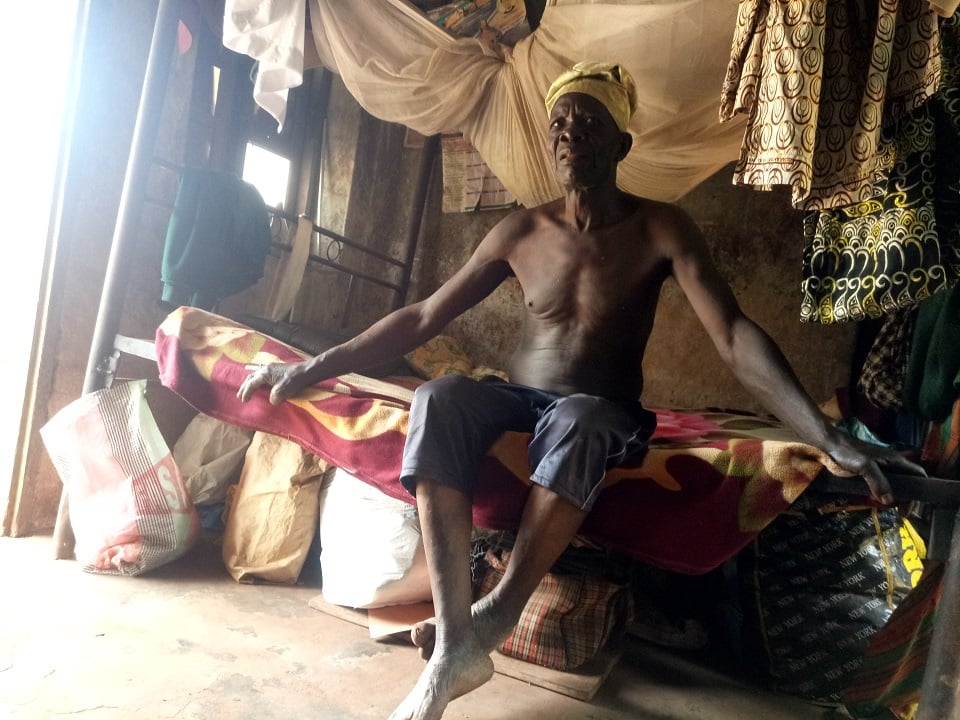
The settlements were designed to employ and pay initial amount of capital to the young graduates from the farm institutes. This was put in place to discourage the movement of those young people to urban areas to seek white collar jobs as well as develop the agricultural sector, which was projected to be the only solution to economic growth.
Advertisement
“The money in those days wasn’t much, but it was useful and significant. The money then could pay for school fees. So, we were able to send all our children to school. But those were the best of days to be a farmer,” Odebiyi sighed as he flipped through the memorable chapters of the past.
“I started hearing about the farm settlement in 1960 when it was created. I left Ijoun Modern School in 1963 and proceeded for a two-year course at Ikorodu Farm Institute from 1963 to 1965, after which I came to this farm settlement in January 11, 1965. The course was free and we were about 50 to 100 that were admitted that year. We heard that the government then built the farm settlement because it had a plan for the future.
“When we came back from the training, the government gave us keys to new apartments. Then, we were bachelors; so, two people were allocated an apartment with different rooms but shared a living room. We were given a bed, mosquito net and cupboard.” Pointing at the wooden structure, he said: “That’s my cupboard outside. It was built in 1960.”
Advertisement
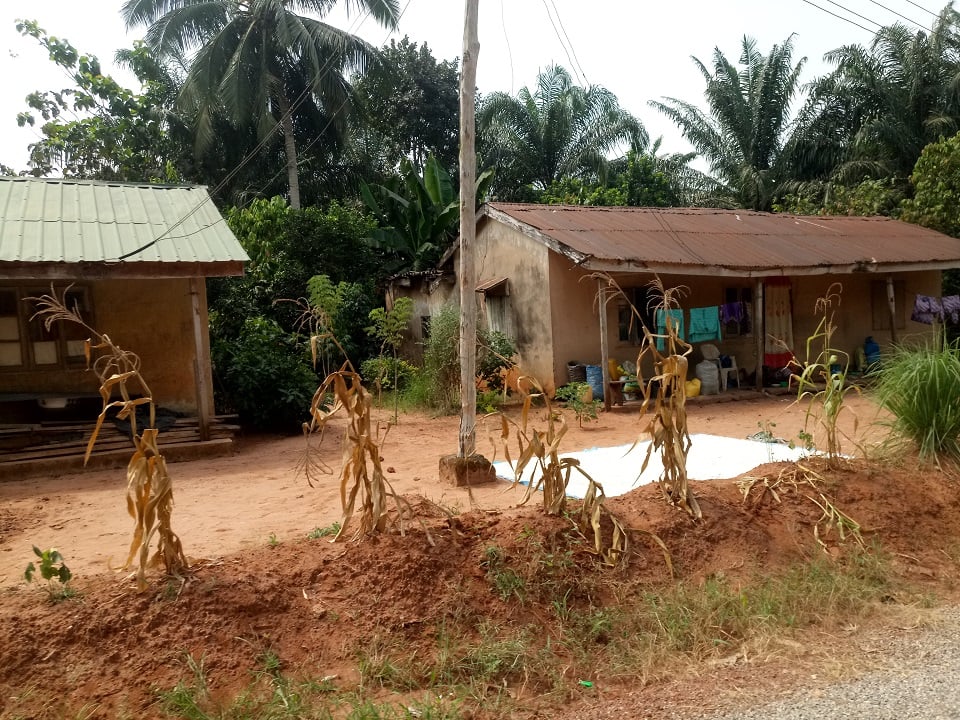
“Aside that, each of us was given 10 acres of land to cultivate. Around 1970s, the government gave out ACE loan; I was not a beneficiary but those who got it became rich after three years and started using cars. With the money we made then, we married more wives.
“I utilised 10 acres I was given because I was very strong. Now, I can only work on two or three acres. Things have changed here. We now suffer.”
Dejection perched in his eyes as he lamented about how life has degenerated over the years in the settlement. But this is not peculiar to Odebiyi.
MORE PATHETIC TALES OF FORGOTTEN FARM SETTLERS
Advertisement
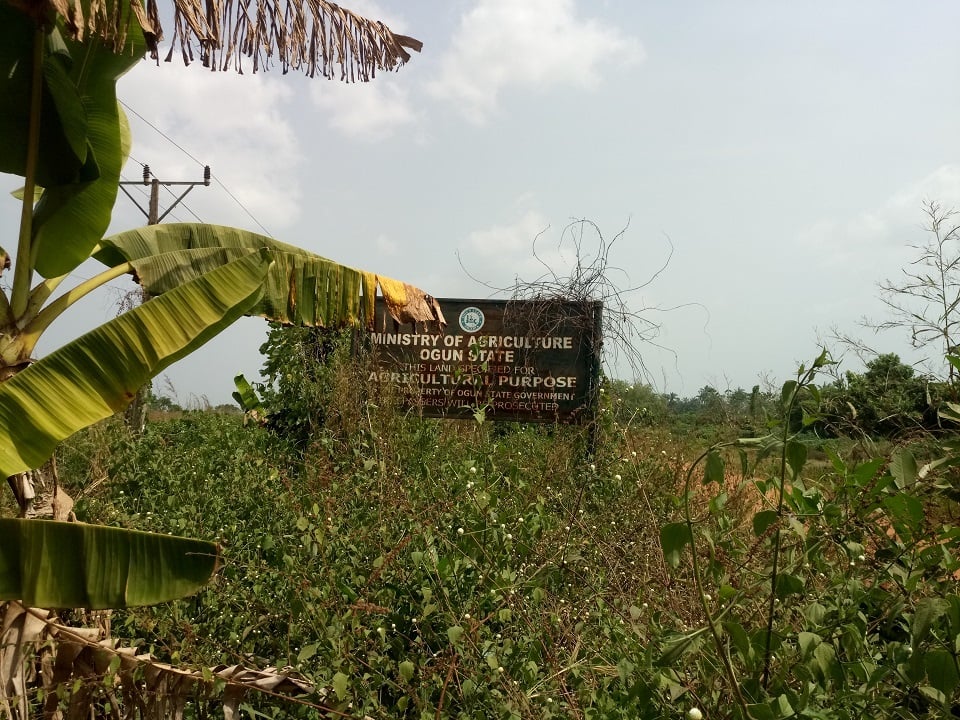
The Sawonjo farm settlement sits on 335,000 hectares of land presently occupied by 121 residents. The population reduced over the years as most settlers had to find better alternatives to raise their families; some settled for civil service – being fairly educated. More houses were deserted, while many collapsed. The settlement no longer wears its glamorous look.
Seventy-eight-year-old Saula Ogunleye, who also attended the Ikorodu Farm Institute, recalled with a wave of nostalgia how farmers in the settlement grapple with mounting challenges that have taken a toll on them.
“When Obafemi Awolowo wanted to start free schooling in the western region, people started asking him the work the people will do when they finish from school. He said he would create jobs for us. Then, he went to Israel with Akinola Deko (former regional minister for agriculture) and brought this model of farm settlement,” Ogunleye said.
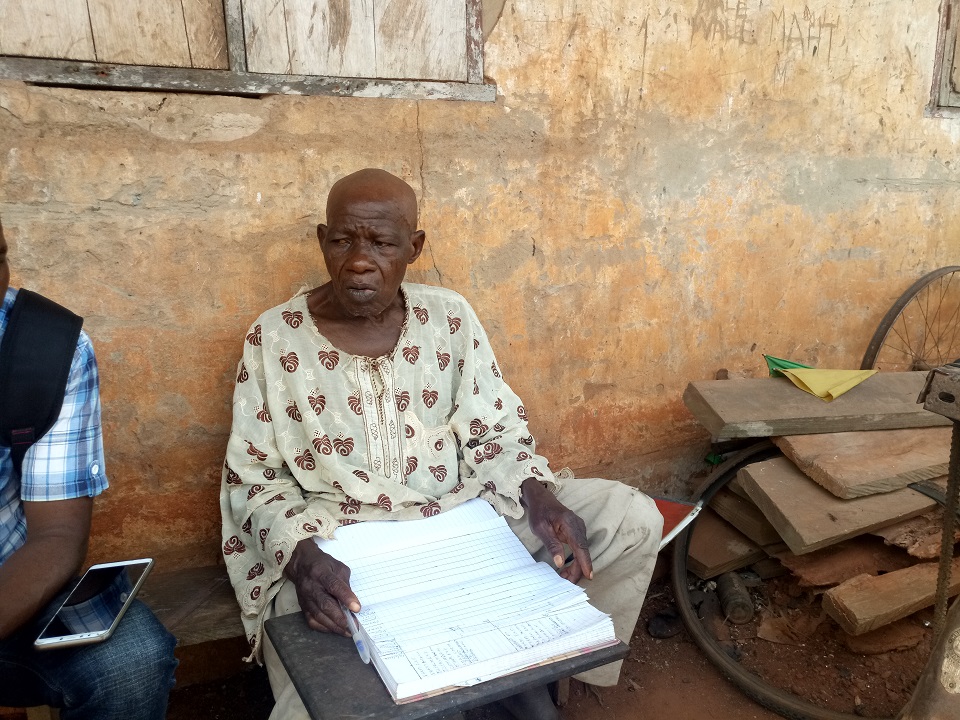
“Then, they gave us permanent crops to produce on 10 acres each. We had everything free; now the government has mandated us to pay N20,000 annually for the 10 acres. Yet, there’s no intervention from the government in any way. We even have to renovate our apartments from our pockets.
Advertisement
“At a time I wanted to collect a loan of N5000, I spent N3000 in administrative fees.”
According to Odebiyi, it costs N8000 to rent a tractor to clear just one acre of land. “In fact, we rent vehicles to move our produce through these bad roads to other towns. We used to plant rice, but birds came and wrecked havoc on them. You’d plant three acres of rice and birds will finish everything,” he said.
Advertisement
“Our produces are not expensive in the market. We just need intervention. We sell a fresh bag of maize for N2000, sometimes N1500. A bag of cassava is just N1,200.”
DRY TAPS, TORTUROUS ROADS, MORIBUND ELECTRICAL INSTALLATIONS
Advertisement
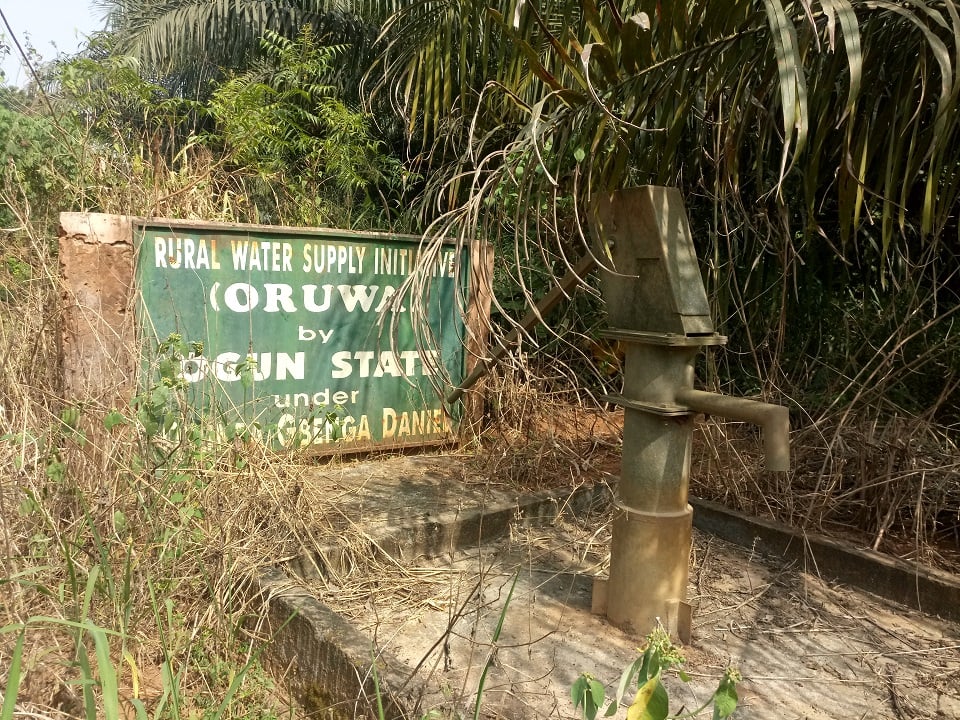
The road to the farm Sawonjo settlement is untarred , rough and dusty. But it is lined up with poles and wires connecting the farm to the power distribution lines. Yet, there is no electricity. David Asogba, 74-year-old trained seller, who had lived at the settlement since 1967, said the settlers had written several letters to the government since the transformer serving the settlement malfunctioned seven years ago. Since then, the small community had been in darkness. In addition, there is no source of water for irrigation. The water projects by successive governments in the state had packed up; hence, they rely on water supply from Igbogila town.
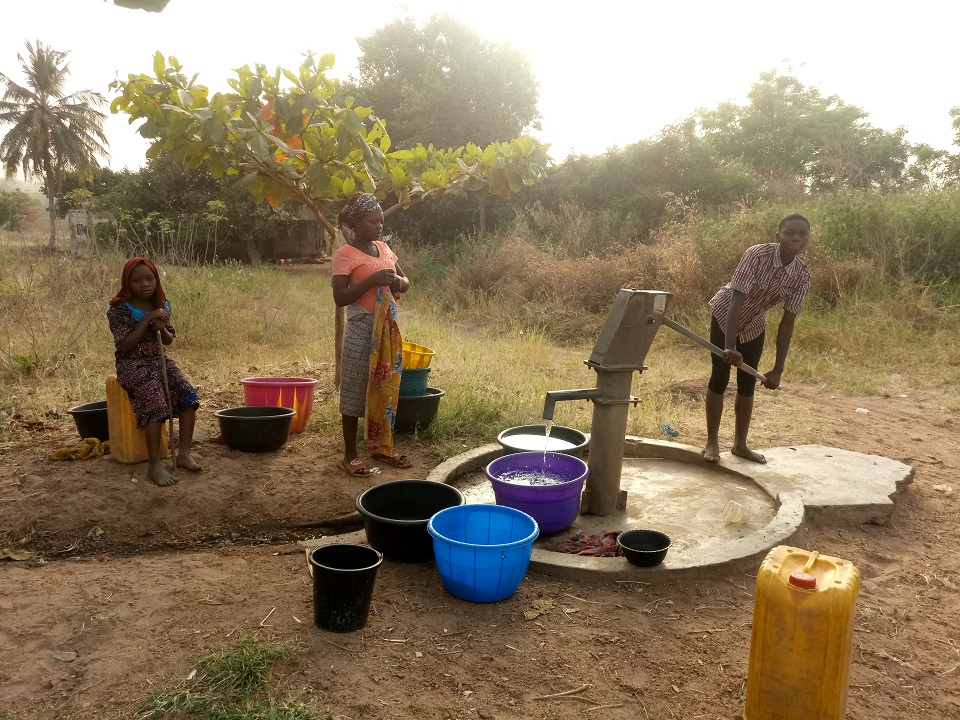
The situation is not different for the small occupants of the Ilora Farm Settlement in Afijio local government area of Oyo state. It’s the largest government-owned farm settlement in the state but has just 206 occupants. For the next 40 minutes, the vehicle conveying this reporter from the historic town gathered speed and clattered through a cloud of filthy dust along the rocky, turbulent road to the farm settlement. The arable land stretched beyond the horizon. Here is a different world entirely – a small community of settlers who seemed to be completely cut away from the entire world. Although there is an extension of electric poles and wires to the settlement, the settlers said they have only enjoyed electricity for just one day – the day it was commissioned.
Advertisement
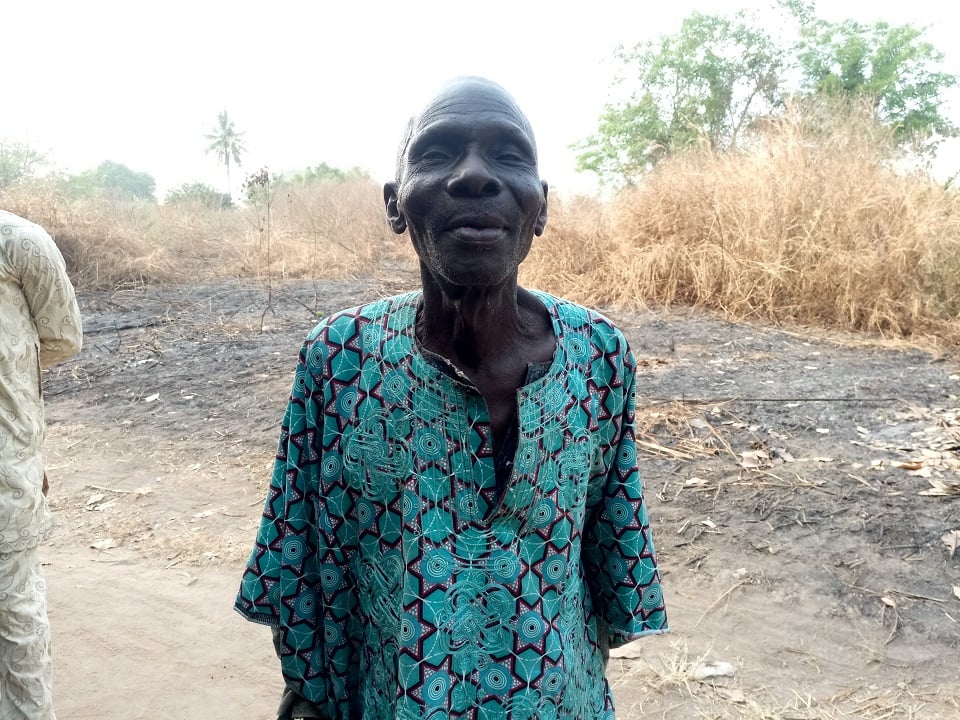
You’d see them queue behind the only tap which oozes once in four hours; then, they come back again to fetch water after another four hours. Those who cannot wait resort to the water from the nearby stream, which they share with livestock.
“We suffer from water here. We queue here all the time and sometimes we beat ourselves over it,” Dupeola Alabi, 60-year-old farmer, told TheCable. “Anytime the tap spoils, each family contributes N3000 to repair it. The stream we fetch water from has been contaminated by cows that defecate inside. So, we also buy sachet water from town and ferry it here. You know this place is far from Ilora town and the road is not good; so, we have to go for what is immediately available.”
‘THIS PLACE USED TO BE PARADISE’
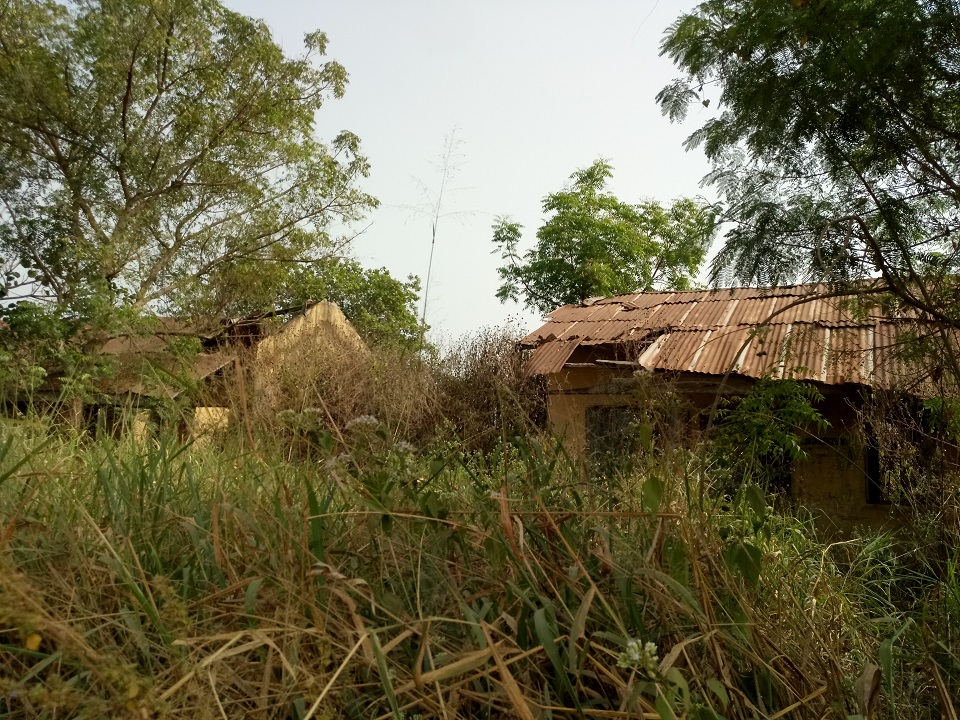
Dupeola’s 70-year-old husband, Emmanuel Alaba, said he joined the farm settlement in 1966 after he came back from the Odeda Farm Institute in Ogun state. Emmanuel, who disclosed that he still cultivates five acres of maize, yam and cassava at his age, said the settlement was a paradise when it started and the early settlers enjoyed to the fullest.
“The settlement started in 1960. I joined in 1965 when I came back from the two years training at Odeda. This place looked like a paradise. We were just enjoying. There were many tractors for ploughing. The government gave us 196 birds for rearing.
“The same government would come and buy our farm produces from us and give us the money. In fact they gave us about six acres, seeds, one thousand heaps of yam to start with and an apartment each. The more you improve on your output, the more the government supplied you with seeds and your land increases too. So, the government officials knew our capacities. We used to put our maize in the silos, but it has been abandoned.”
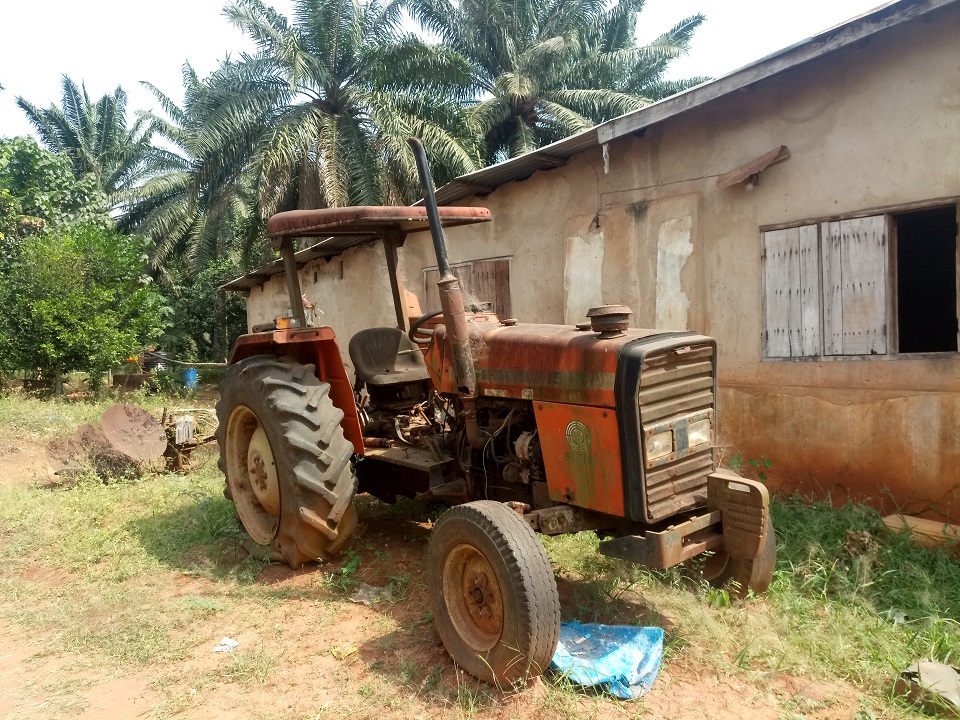
Emmanuel lamented that there are no more interventions to help farmers plant more crops and increase their capacity. He added that they have to buy fertilizers, seeds and rent equipment from the meagre proceed they make from farming.
SQUANDERING N7.9 TRILLION ON FOOD IMPORTATION
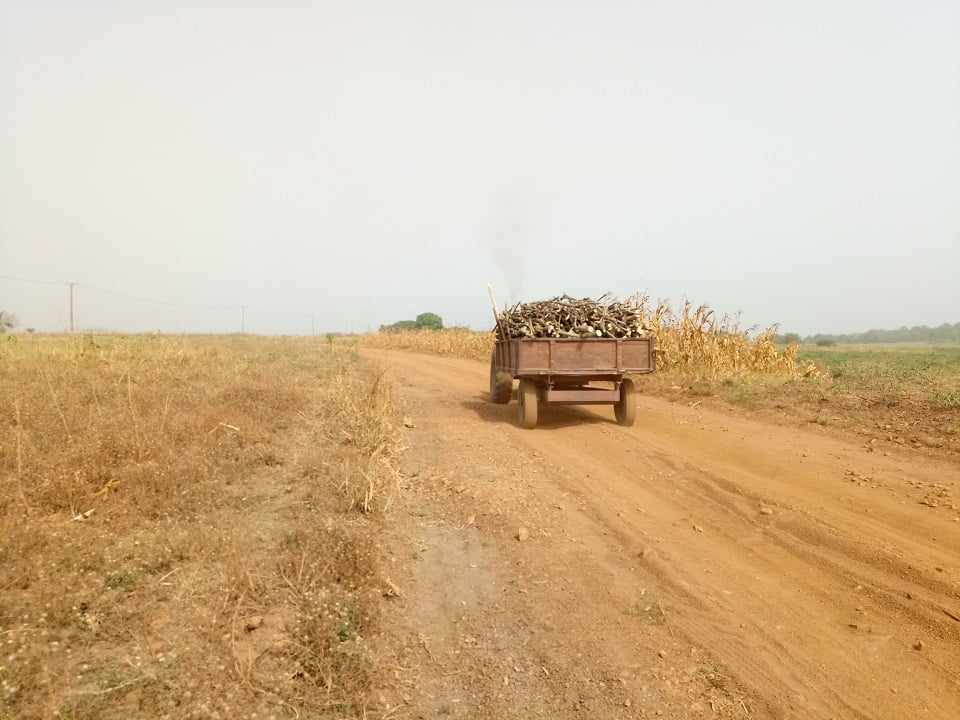
In the 1960s when the farm settlements were in vogue, agriculture was the mainstay of the nation’s economy. It provided the largest chunk of foreign exchange flow into the country. Analysts say it added about 60 per cent to the country’s gross domestic product (GDP), unlike the paltry 29.25 percent overall declared by the National Bureau of Statistics (NBS) in the third quarter of 2018. But as the era of oil boom crept in the 1970s, the government’s attention began to shift away from the agricultural policies and programmes in place. Crude oil became the new currency and the farm settlements began to fade.
According to the Food and Agriculture Organisation (FAO) of the United Nations, only 34 million hectares of Nigeria’s 72 million hectares of agricultural land is cultivated, leaving 38 million hectares lying fallow. Despite the available land for local agricultural production, the country relies on massive importation of food. Among food items imported are wheat, corn, rice, sugar, salt, vegetable oil, processed meat and dairy products.
According to the economic complexity index, Nigeria imported $35.1 billion in 2016, making it the 57th largest importer in the world. However, during the last five years the imports into the country have decreased.
In August, Audu Ogbeh, minister of agriculture, announced that Nigeria spends $22 billion (N7.2 trillion) annually on food importation and lamented that the situation was unsustainable, as it posed danger to the nation’s economy. Suffice it to say that the staggering amount spent on bringing these food items into the country continues to deplete the nation’s foreign reserves, as many thriving local factories are folding up.
“Nigeria spends almost $22 billion every year on food importation. If we don’t fix agricultural problems in the country where families can feed on less than 15 percent of their budget, then the country is in trouble,” the minister had said.
REDUCING UNEMPLOYMENT THROUGH AGRICULURE
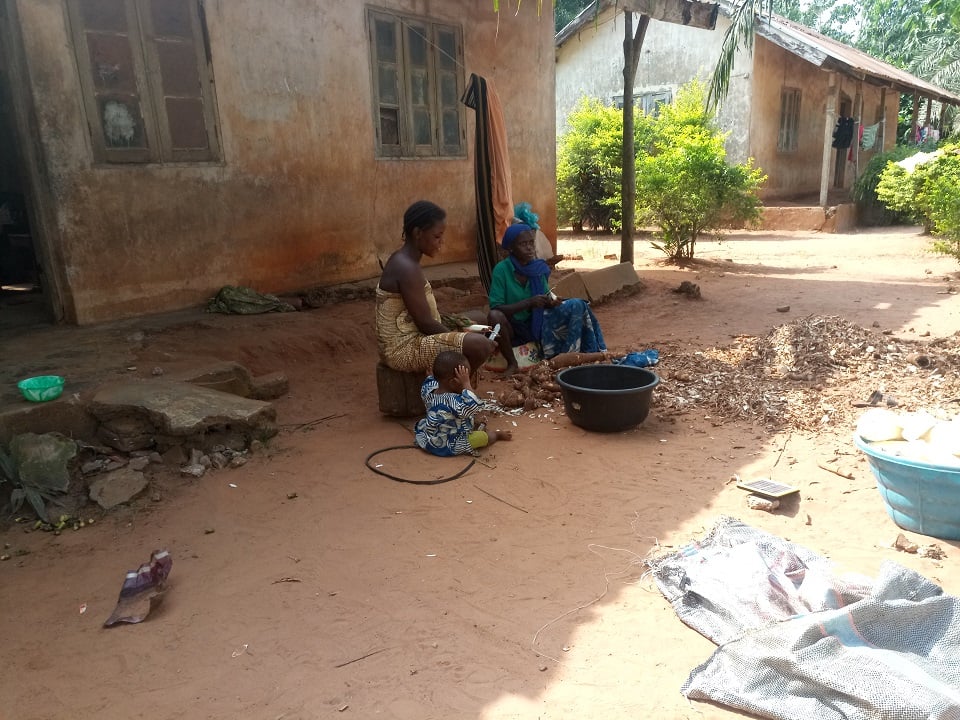
If there’s one thing that could be easily noticed in the two farm settlements, the occupants are the old people who were the first settlers. Except for young wives like 21-year-old Ayo Leoto who recently joined the Sawonjo settlement, you’d hardly find the presence of youths who own farms in the vicinity. The lack of support for farmers has made agriculture unattractive to the youths.
Ayo Babatope, 32-year-old commercial motorcyclist in Igbogila, said it’s very hard for youths of the community to work at the farm settlement and cannot just embark on farming when they have no capital to start with.
“That’s why some of us drive motorcycles to earn a living and survive. We have families to cater for. I rear pigs but I don’t have enough fund to enlarge the business,” Ayo said.
Joseph Adeosun, a farmer at the Sawonjo Farm Settlement, said it’s only few of their children who have shown interest in treading their path. “The last time government officials came here, we asked them for their continuity plan for the younger ones when we die. We told them that we want our children to inherit us. We have trained them in farming here but only those few who are interested are staying behind.”
In a telephone interview with, Victor Atilola, permanent secretary, Oyo state ministry of agricultural resources and rural development, said the government has started a rural access mobility and marketing project to address the electricity, water and road challenges farmers in the nine settlements in the state are facing.
“A lot has been done in Oyo state to entice youths to agriculture. We have what we call agric Oyo. What we found out was that the youths, except those who have interest, are used to all these dirty getting-rich-quick syndromes. In the three-month government empowerment programme for maize farming, we had 200 participants, and at the end, hardly did we get up to 100 left. They abandoned the programme. The issue is that the state has tried to mechanise agriculture so that they will no longer run away. Those who have made it through the farm settlements will tell you that they are now job providers. In fact, we are getting the private sector involved in agriculture. Some of the investors employ up to 2,500 workers,” Atilola said.
CREATING ACCESS TO LAND FOR YOUNG FARMERS

Besides lack of access to good agricultural practices, efficient technologies, and necessary inputs like fertilizer and herbicides to ensure a bounty harvest, access to land is key to ensure youth interest in agriculture.
Meanwhile, a recent data from the NBS showed that the number of unemployed Nigerians has risen to 20.9 million from 17.6 million in August 2018. Of the 20.9 million unemployed, 8 million are classified as unemployed because they work less than 20 hours a week. The lack of development of agriculture means that it will continue to be a source of seasonal work and make a dent in Nigeria’s unemployment rate.
While speaking with TheCable, Ken Ukaoha, president, National Association of Nigerian Traders (NANTS), advised the government should rather look inwards and revitalise the moribund farm settlements to achieve food security.
“These old farm settlements have been moribund for a long time and they are not adding value to the economy and sustainable development in the country,” Ukaoha said.
“Look at what is happening in the country, the insurgency in the north east and the herdsmen farmers’ crisis in the north central. These two zones that are known as the food basket of the country have been cut off by these two crises that are ongoing. What that portends is that in a few years, maybe any moment from now, we will be having food shortage. Of course, that means that we need to put the machinery in place to revitalise every abandoned project in terms of agriculture.”
When asked about the challenges of access to finance which may affect the productivity of young farmers even if the available lands are allocated to them, Ukaoha maintained that access to land should be the starting point, as that would attract the kind of finance they want.
“The first capital, when it comes to agriculture, is not finance but land. If you have the money, you cannot plant in the sky. With land, you can have access to finance. It is the land that banks want as collaterals. So, your land can be an attraction for the kind of finance you want. If you have land, you can now begin to write visibility study or proposals on what you want to do,” Ukaoha said.
“We need to look at our land use reform of 1978 so that those lands can be made available to farmers and small scale producers to use, as they are unemployed.”
WHAT WOMEN STAND TO GAIN

Sulaimon Arigbabu, executive secretary of Human and Environmental Development Agenda (HEDA), a civil society group, said reviving the old farm settlements could improve the welfare of farmers and impact more on women.
“It means that there is a guarantee of access to land for women, whether they are sharing it with their husbands or they own it alone. One of the major issues for women in Nigeria, especially small scale farmers, is the tenure system for land that creates discriminatory practices for women to own lands,” he told TheCable
“If we are to revive farm settlements again in Nigeria, we need to have at the back of our minds that times have changed a lot. People who are going to stay in the settlements must not lack anything in terms of modern facilities. They must have access to potable water, electricity, telecommunication, fast internet, medical facilities within a short distance and their children must be able to attend quality public schools.”
However, farm settlements were never clear-cut ways for women to access land in their hey-days. This is especially concerning, because according to the NBS, while men gained 4.9 million jobs in the last 12 months, women lost 4.5 million jobs.
For Amina Jibrin, former president, Association of Small-Scale Agro Producers in Nigeria (ASSAPIN), women have not benefitted much from the farm settlements owned by the government because they are not allowed to own lands and do not have the total control of their own resources. She said if women are given unfettered access to lands, they stand to gain a lot as they would be able to control the economy from the farms.
“In most cases, access to land is not easy for women,” Amina quipped. “Out of every 10 people that apply for government farmlands, you can hardly see two women selected. Men are considered first before the women. However, women in Nigeria constitute almost 70 pe cent of the small-holder farmers, those that produce food for domestic use. But they don’t have their own lands or 100 percent ownership of the things they produce.
“But if they have their own farmlands, they will produce and control the economy that comes from the farms.”
THE BILL TO ESTABLISH MORE FARM SETTLEMENTS ACROSS THE COUNTRY
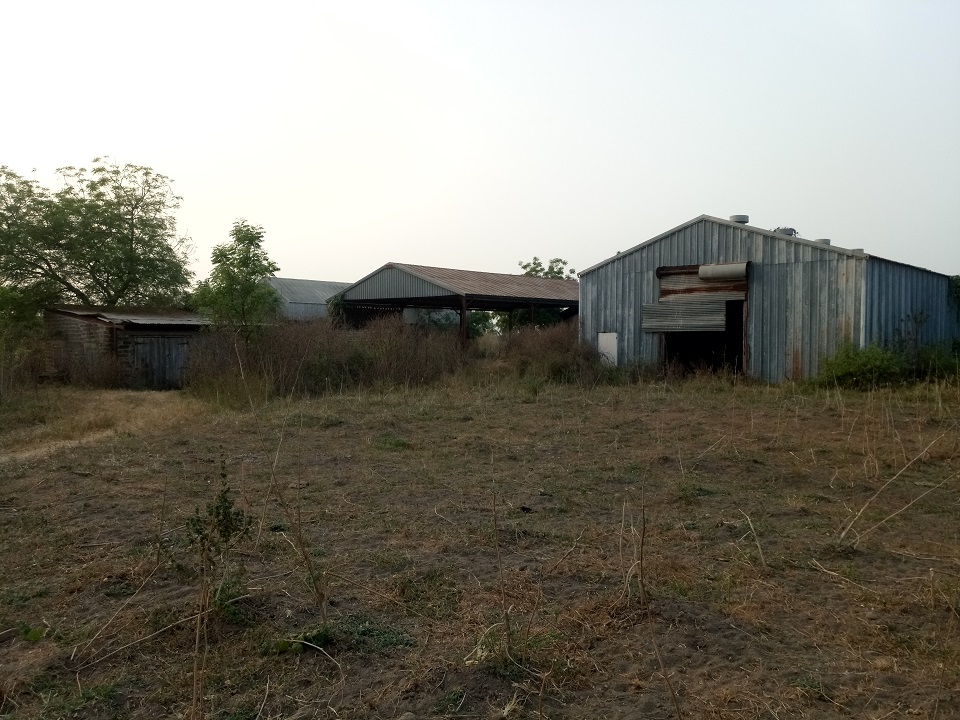
While the existing farm settlements are in rotten state, the house of representatives, in November 2017, passed for second reading a bill seeking to amend the National Agricultural Land Development Authority (NALDA) Act, 2004, to give room for the establishment of more farm settlements across the 36 states of the country and the federal capital territory (FCT) with the aim of attaining food sufficiency.
The lawmakers said that creating such opportunities in the agricultural sector would improve economic diversification and create jobs for the teeming unemployed youths in the country.
Evelyn Oboro, lawmaker representing Opke/Sapele/Uvwie federal constituency of Delta state, who sponsored the bill, said it would promote agro-entrepreneurship among young people and women.
Findings by TheCable showed that the bill is at committee stage, where it is being attended to by the committee on agricultural production and services.
This story is supported by OXFAM in Nigeria. The published materials are not the views of OXFAM.

